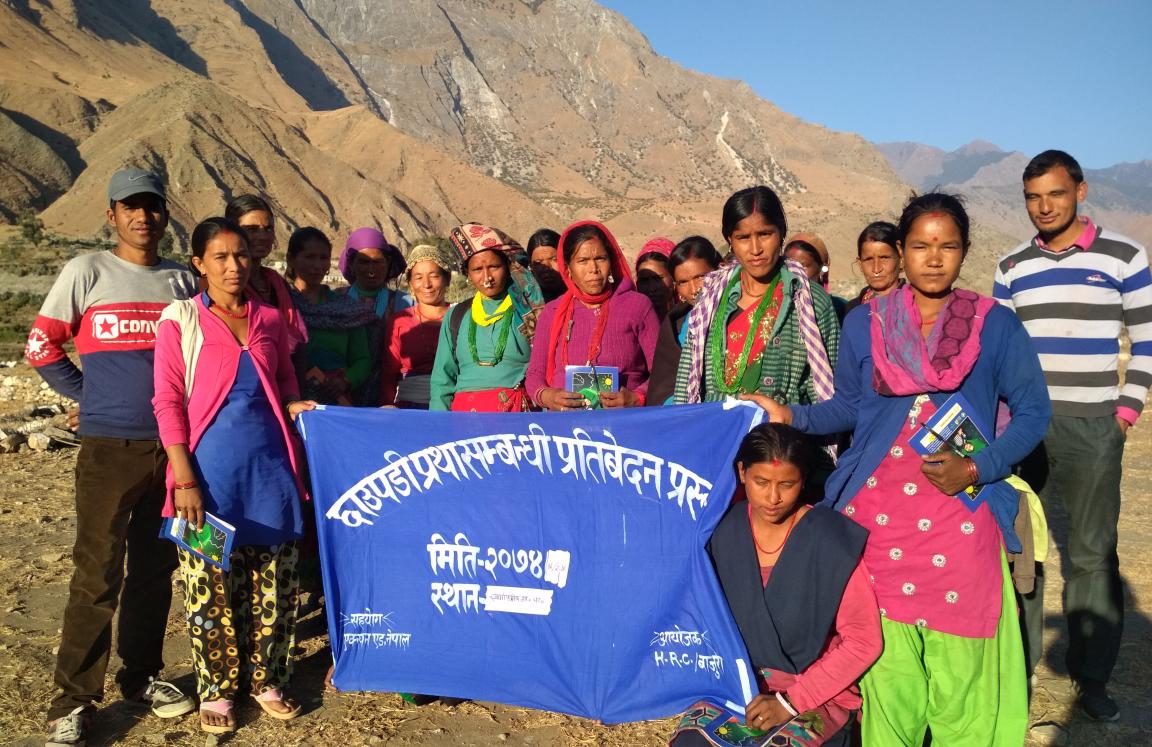
Women’s Rights Leaders and Policy Advocacy
With the increased capacity through leadership development trainings and various capacity building initiatives, 184 women from different groups, networks and ReFLECT circles of our working areas succeeded to be elected in local election. Further, two of our women rights activists was nominated as Provincial Parliament members through Proportional Representative System.
During 2017 elections, MAM organised an election education campaign with a number of capacity building initiatives. The network also published a booklet to provide detailed information on election provision for women. This helped 150 MAM members to receive the candidacy, out of which, 80 of them were elected in local election.
Women have begun to actively participate in different community level committees like PTA, SMC, WCF, CFUG etc. For instance, in Doti, Sita Bista and Sita Auji proved themselves by leading the community plan of constructing the road worth a budget of NRs. 5 lakhs and made it happen. In Bajura, MAM was successful to track local resource and construct a 60-thousand-liter water tank, which benefitted 70 households in total.
The Criminal Code Bill passed by the parliament entitled chaupadi as a ‘Crime’. The new law sentences three-month jail or Rs. 3,000 fine or both against the culprit. MAM, women’s groups and networks and like-minded CSOs were engaged in continuous campaigns at local affected areas and policy advocacy in the National level.
The newly elected local government representatives/leaders were also oriented on their roles and responsibilities including the issues of women rights such as GRPS, gender-based violence etc. They were also oriented on the newly formed judicial committee and its essence. With an objective of discussing the roles and responsibilities of the judicial committee, AAN and its partner organisation, DJKYC organised a Province level Women’s Conference in Province 2 followed by a submission of 10-points declaration paper to the elected bodies. The conference was participated by 80 vice mayors and 300 women rights activists of the province.
AAN, its partner organisation, NMES and the ReFLECT members had jointly conducted a study on the status of slum community’s access to public services. The team collected information from 15 slum settlements and found that the slum dwellers are deprived from even the basic services of water, health, education, electricity and sanitation. The report was later shared with local government representatives and commitments from them were received for the improvisation.